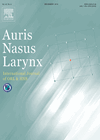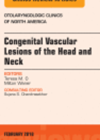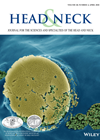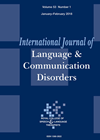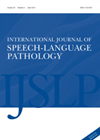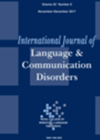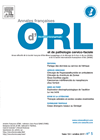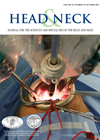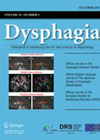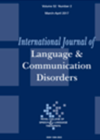
Journal Reviews
Laryngeal cleft in a 66-year-old man!
This is a fascinating case report of a 66-year-old man who presented with a carcinoma of the piriform sinus. During chemoradiotherapy, he developed dyspnoea, dysphagia and aspiration pneumonia. His chemoradiotherapy was stopped and he underwent a pharygnolaryngectomy. When the surgical...
Management of infantile haemagiomas of the airway
This paper reviews the diagnosis and management of infantile haemagiomas (IH) affecting the airway. Approximately half of infants with this condition would also have cutaneous haemagiomas which are usually in the beard distribution. IH could affect any parts of the...
The rise of AI in the head and neck clinic
There has been a huge focus in recent months on the rise of artificial intelligence (AI) in all aspects of modern life, and the head and neck clinic is no exception it appears. This paper builds on previous work to...
Semantic fluency test to investigate deaf children
Semantic fluency task (SFT) is used to measure lexical organisation and executive function across the lifespan and requires participants to name examples from a particular semantic category in a specific period of time. Using this test, the authors investigated a...
Help or hinder: how and why do SLTs make clinical decisions around swallowing?
Dysphagia is a relatively common consequence of stroke, with estimates between 50% and 60% of people presenting with swallowing dysfunction following stroke. It is associated with pneumonia, malnutrition and dehydration which in turn lead to increased length of hospital admission,...
Multilingualism in a monolingual environment: shifting perspective for economic benefits
English proficiency amongst migrant populations has a relatively high profile in the UK education system at present. This article compared data from two Australian national censuses with the aim of describing the English proficiency of the Australian population, to explain...
Developmental language disorder
Disorders such as attention deficit disorder (ADHD), autism spectrum disorder and developmental dyslexia have received widespread recognition. As a result, children affected by these conditions are able to receive remedial services. In this article, the author discusses the possible reasons...
Epistaxis and anticoagulants
The French Society of Otorhinolaryngology Head and Neck surgery issued some recommendations on the management of epistaxis in patients receiving anticoagulants, anti-platelet aggregants and anti-vitamin K drugs. This was a national multidisciplinary evidence-based concensus document. The group recommends review of...
Management of oral white patches with malignant potential
This paper focuses on a rare but aggressive form of leukoplakia with malignant potential and is an important reminder of the need for specialist management to those in allied specialties such as ENT that may initially be referred these oral...
Post-operative tonsillectomy bleeding with a normal clinical exam
Tonsillectomy is amongst the most common surgical procedures performed across the western world. For patients who report bleeding post-tonsillectomy, but have no clinical findings on examination, the management can be unclear. The accepted current management in most centres would be...
Should patients with dysphagia be allowed water freely?
Patients with dysphagia often experience dehydration as a consequence of “nil by mouth” or having to consume thickened fluids due to aspiration of thin fluids. However, not all incidents of aspiration develop into an infection. Factors that contribute to aspiration...
Increased intensity of treatment: intensity does not improve outcomes
There is a paucity of reports regarding the intensity and appropriate duration of treatment required to improve the language abilities of children with language impairment. This study used direct measures such as the time spent on language, the frequency, number...

